Building a Sustainable Events Industry in Ireland: Industry Insights on Green Skills and Best Practice
In this blog, key NTG partner TU Dublin, interviews Megan Best, CEO of Native events. Megan shares her insights and knowledge of sustainability and the event and festival industry in Ireland. Native Events is Ireland’s leading sustainable event production company. With more than fifteen years’ experience in event production and a background in environmental management, Native Events is uniquely positioned in Ireland to help events make the transition towards sustainability.
Megan Best is an event and production manager and environmentalist. She devises and implements workable solutions to the unique environmental problems created by festivals and events. Megan has spent the last decade pioneering initiatives in the Irish music festival scene and is genuinely convinced that the cultural and events sector can be at the forefront of change. In 2017, in a bid to raise awareness, she co-founded Attention Attire – a circular fashion clothing brand entirely created from festival campsite waste. Her current role is as CEO to Native Events, the driving force for sustainable event solutions in Ireland. Megan is also the Operations Manager of the Body&Soul Festival, an explosion of music, colour and vibrancy that takes place on the summer solstice weekend in Ireland each year and attracts over 15,000 people.
Megan Best presenting at ‘Green Week’, TU Dublin, School of Hospitality Management and Tourism, March 2020.
When asked about key current event sustainability issues, Megan highlighted that:
‘There are so many! The issues around waste created at events are huge but honestly, I do think there are a lot of people working on this, the awareness is there. Waste is so visual and tangible, people can really engage with this as an issue. The principles of the circular economy are a lot about designing out waste – the answers to the issues of waste are kind of ‘easy’. Good waste management is very implementable and is definitely happening – of course we don’t actually have recycling facilities in this country which is a huge problem – but in truth, we need to move beyond recycling and adopt reusables for events’.
Furthermore, she added that:
‘The issues around emissions from travel, however, is a harder nut to crack. Audience travel, artists travel (often international), goods and infrastructure transport, and staff travel are all still fueled by the fossil fuel industry. The infrastructure doesn’t exist yet in Ireland or in much of the EU for a transition to green travel and this is a huge issue. My sense is that this needs to be tackled head-on. Public transport links in Ireland really need to be improved, massively, so that people can be encouraged to travel in this way instead of the most convenient method of travel being individual cars’.
Looking to the future, to manage sustainability, Megan noted that:
‘We need to start getting real about the combined issues of inequality, climate change and biodiversity loss, essentially ecological breakdown. This is what we’re facing and the events and cultural sector need to understand and embrace this. Our work practices are going to change beyond all recognition in the next 20 years, there is no escaping this. We in the events and wider cultural sector need to use our voice and influence – we are very visible and vocal entities – to communicate about this and to show leadership in adopting new ways of working and being. To be honest, I think we are now at the point where we need to move beyond sustainability and towards work practices and organisations that are regenerative and redistributive by design’.
As a sustainability consultant, Megan engages in initiatives to address issues of sustainability. For example, she highlighted that:
‘To date, I’ve been working a lot on strategy and policy for events, festivals and event suppliers. This means working with the team in an organisation (it’s important to get everyone on board), envisioning how things could be done differently and then mapping out how to get there. We’d often start with a couple of examples of best practice in the industry, using case studies from the UK, the Netherlands, or further afield, to show what can be done and to inspire. Then we devise a step-by-step process to achieve the new goals – starting with internal communications and working the sphere of influence out from there. It takes time and investment but it’s rewarding work for me as a consultant and for clients when they see results’.
When asked about the green/sustainability skills that are needed from employees in the events industry, Megan strongly emphasised that communication and collaboration is key to success:
‘To achieve sustainability, all stakeholders (be they staff, suppliers, sponsors, acts, audiences) need to understand that the organisation has adopted this as a core value and that new policies and procedures are put in place to reflect and achieve this. There’s a much better chance of reaching aims and targets if the responsibility is understood and shared. So spend time with stakeholders, build strong working relationships and clear communications campaigns, and make the journey a mutual experience as opposed to a top-down approach’.
Furthermore:
‘Another vital skill set is attention to detail. Achieving sustainability and circularity is about monitoring, evaluating and understanding the organisation’s impacts so that improvements can be made. Know your waste figures, where different waste streams are going, who is supplying electricity, how much electricity is being used and start to come up with creative and innovative ways to achieve reduction. As event producers, we are inventive, creative and adaptable folk so devising new and greener ways to do things is the easy and fun part!’.
In addressing/managing sustainability in Ireland, Megan highlighted that:
‘The events industry in Ireland is waking up to sustainability, there is no doubt about that. Body&Soul Festival has had some great achievements in this area over the past 7 years, including massive increases in recycling rates – from 17% in 2013 to 58% onsite recycling in 2018, and 96% recycling and recovery after processing in 2019. We also achieved a 21% reduction in our diesel consumption in 2018 (a saving of 17 tonnes CO2 emissions) through the implementation of a smart power plan at the festival. The green campsite at the festival – where attendees sign up to a code of conduct which fundamentally means that they respect each other and the land – has grown from 500 to 6,000 capacity over the years. At Native Events, we’ve also been working with St Patrick’s Festival (a five day festival and showcase of Ireland’s rich culture and heritage) for the past two years, where we’ve developed waste management plans, traders policies and internal communications plans. With this, the festival has banned single-use plastics for their traders, have a number of food items required to be organic, have a staff sustainability guidebook, and together we have put in place a workable five-year roadmap to transition towards sustainability’.
Reuse of flags and décor at Body&Soul Festival, Ireland.
Sustainability initiatives, solar panels and reuse/upcycling example: Décor created from old whiskey barrels at Body&Soul Festival, Ireland.
However, challenges and barriers do still exist:
‘The industry as a whole has a long way to go. One of the most frustrating things I found as Operations Manager for Body&Soul was the difficulty in contracting sustainable event suppliers. There was no-one in Ireland supplying sustainable power for events, so although we tried to be as efficient with our needs as possible, the vast majority of our lighting and power was fossil-fuel based. My business partner and I actually got so frustrated with this that Native Events has invested in temporary solar power installations for events, and we can now provide renewable energy solutions to small to medium scale activations or stages at outdoor events. Another example is around environmentally-friendly sanitation solutions, there is no-one in Ireland offering this service, so we had to hire in hundreds of chemical portaloos each year. This practice is incredibly wasteful and damaging but there is currently no way around it in this country’.
Megan noted that what is really needed is:
‘Big conversations across the entire supply chain, or supply web as I like to call it. As events professionals, we need to sit down with Transport for Ireland, Bus Eireann and Iarnrod Eireann and figure out how we’re going to get audiences to events going forward. We need to sit down with the regional waste offices, waste hauliers, packaging companies and wholesalers and really figure out what’s happening from production to consumption to eventual disposal, or ideally reuse. We need support and investment for fledgeling sustainable suppliers who are keen to make change and scale with their sustainable solutions to the environmental and social issues that events and society are experiencing. Individuals, events, businesses, organisations can tackle the issues they are experiencing and can make improvements to a degree. However in truth, my assessment is that cross-sectoral discussions and development need to happen for us to really achieve the transition to sustainability and circularity – we need systems change’.
Conclusions and Key Issues
Insights from industry highlight the growing importance of sustainability in the events sector. These issues are pertinent not only in Ireland but also across Europe and worldwide. Current issues and challenges to be addressed and managed in the events industry and more broadly, in the tourism industry, include:
- waste management
- emissions
- climate change
- ecological breakdown
- biodiversity
- the supply of sustainable power for events
This blog has emphasised that while green skills and employee awareness of the above are important, equally, developing strong working relationships is also a key factor in achieving sustainability in the events industry. Soft skills, teamwork, innovation and effectively working with stakeholders to monitor and understand impacts are also key in creating responsible events and managing sustainability. Finally, while some challenges and barriers exist, initiatives, best practice and knowledge sharing continue to be developed and lead the way to a more sustainable world. The NTG Alliance and key partner TU Dublin thank Megan for her insights and the continued efforts and contributions of Native Events.
Follow the efforts of the Next Tourism Generation via our website, Facebook, Twitter | #NTGskillsalliance or via LinkedIn



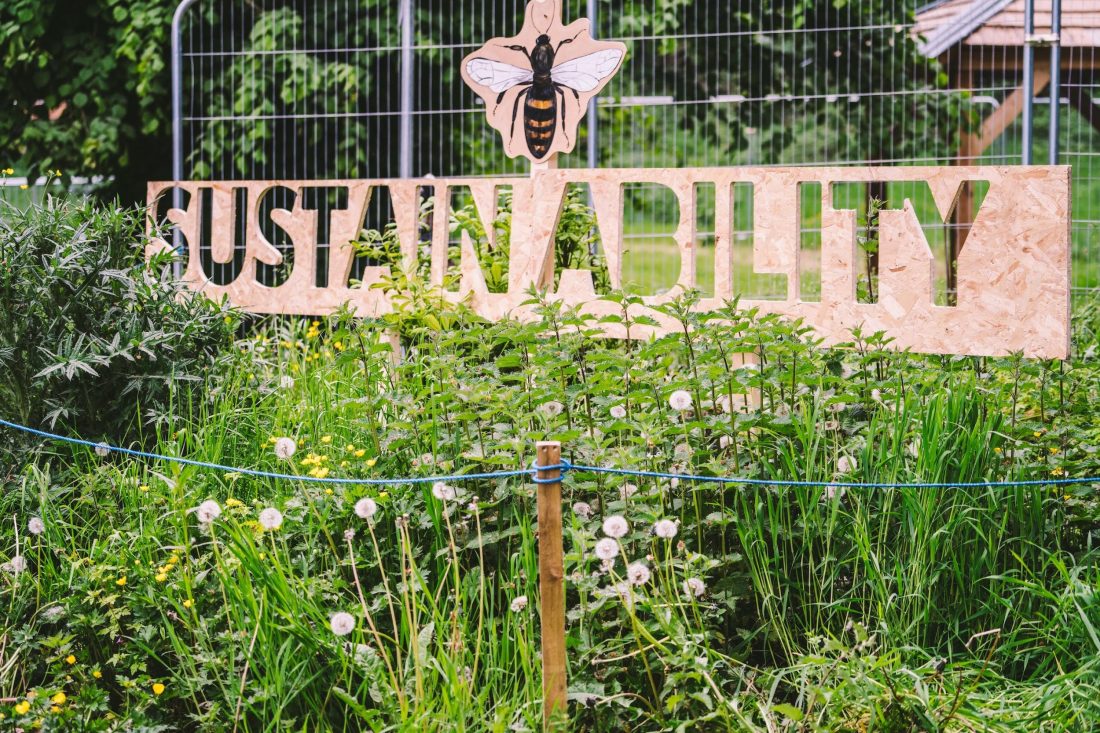
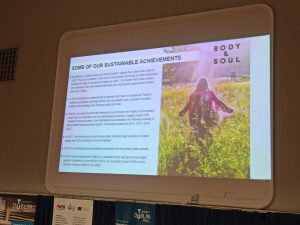
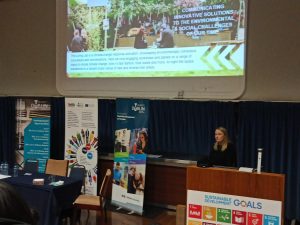
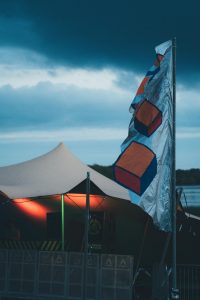

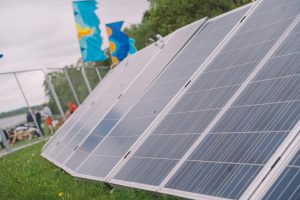

No Comments